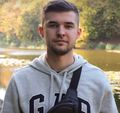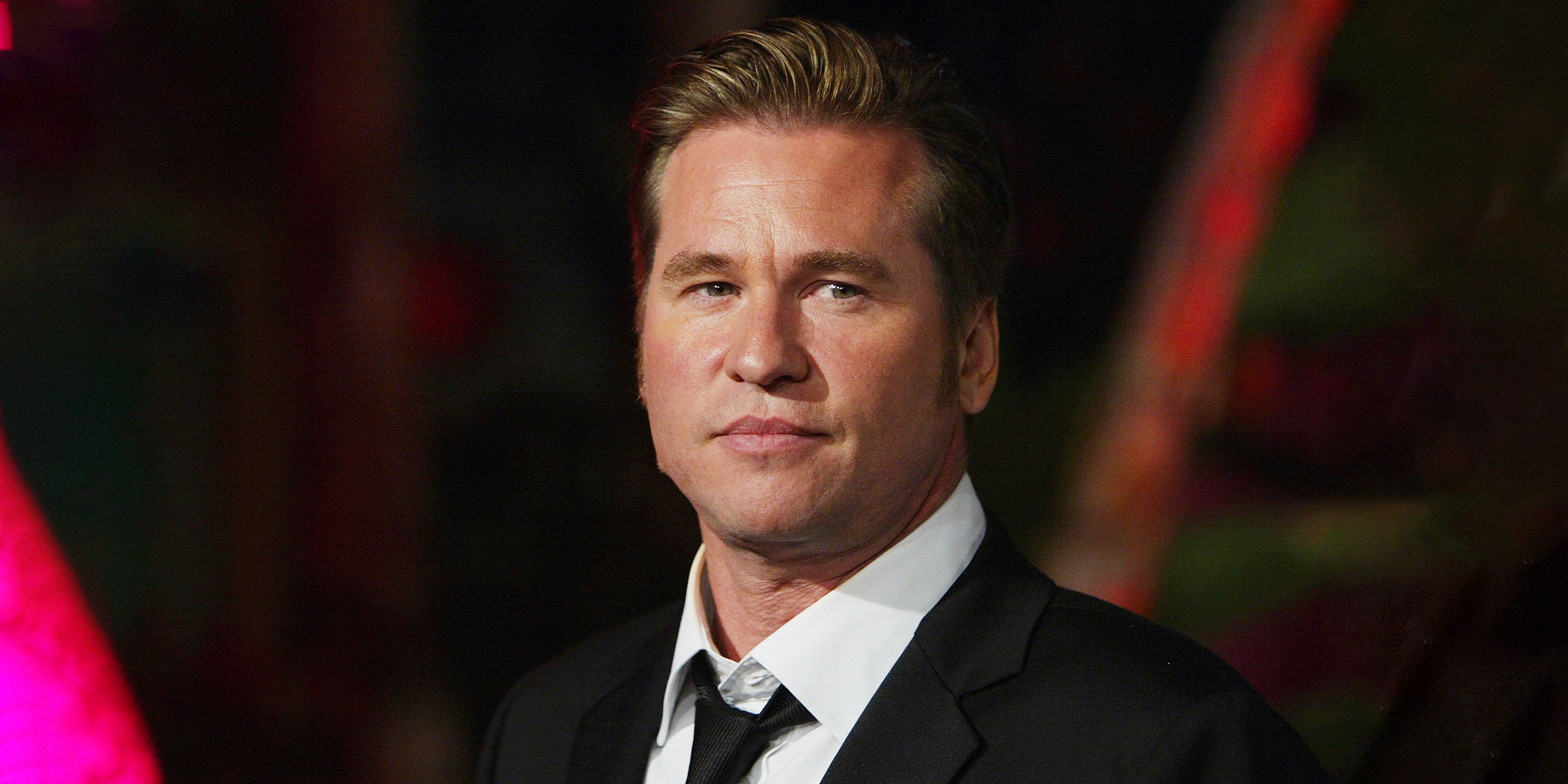
Val Kilmer Was Slammed for Using Prayer as a Cure for Cancer Before His Death at 65 – Inside His Beliefs
He captivated audiences for decades with unforgettable performances, but what unfolded in his final years left fans divided. Guided by a faith few truly understood, his deeply personal journey challenged public opinion and sparked a debate that continued long after his passing.
Best known for his magnetic performances in Hollywood productions, Val Kilmer spent decades captivating audiences with his on-screen charisma. But in the final chapter of his life, his steadfast commitment to faith captured headlines and stirred debate.
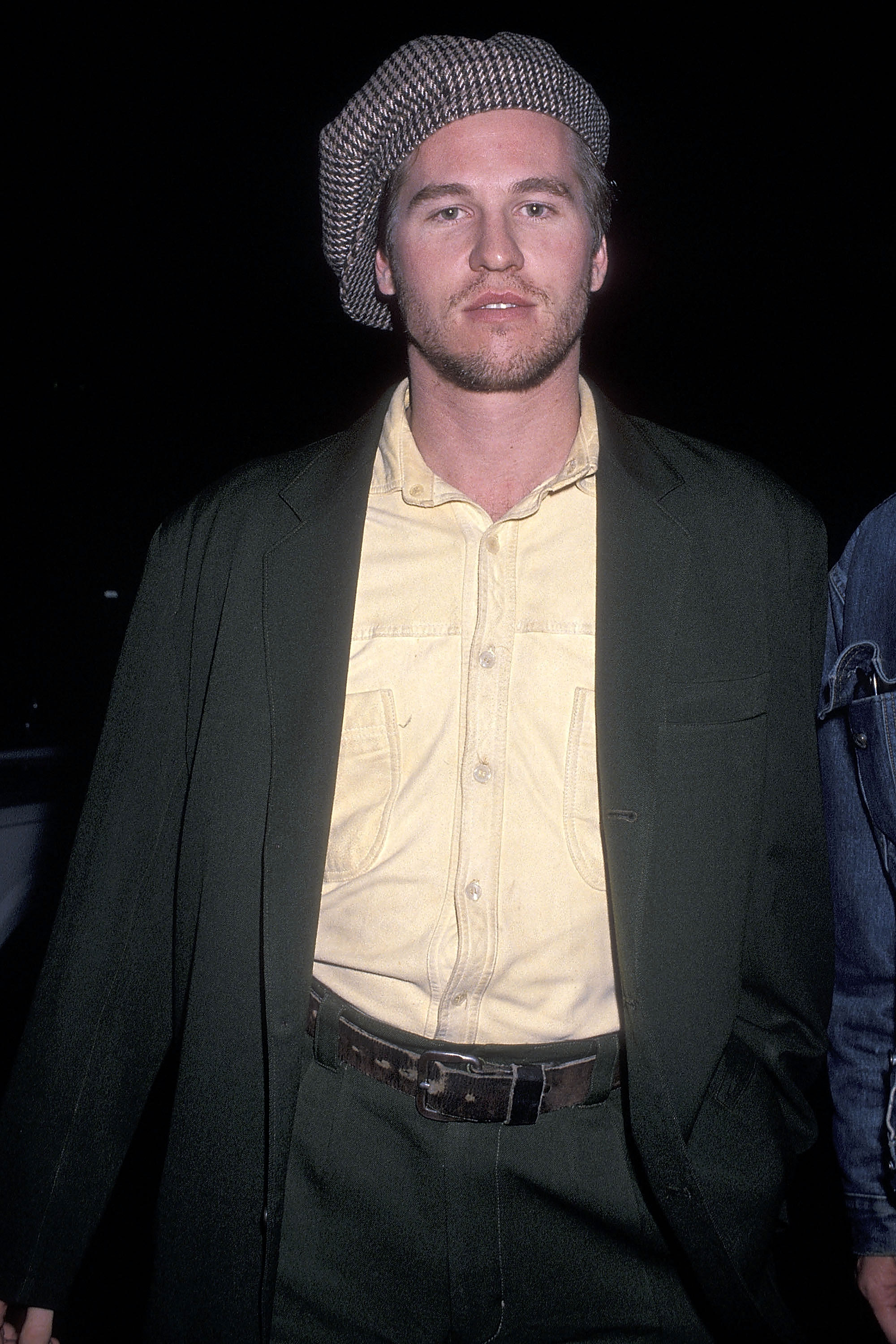
Val Kilmer at the "Hurlyburly" opening night party on November 16, 1988, at the Twenty/20 Club in Century City, California. | Source: Getty Images
Following his recent passing, the actor leaves behind more than a legacy of iconic roles. His deeply personal and controversial views on illness, healing, and prayer — especially during his battle with throat cancer — drew both fierce criticism and devoted support.
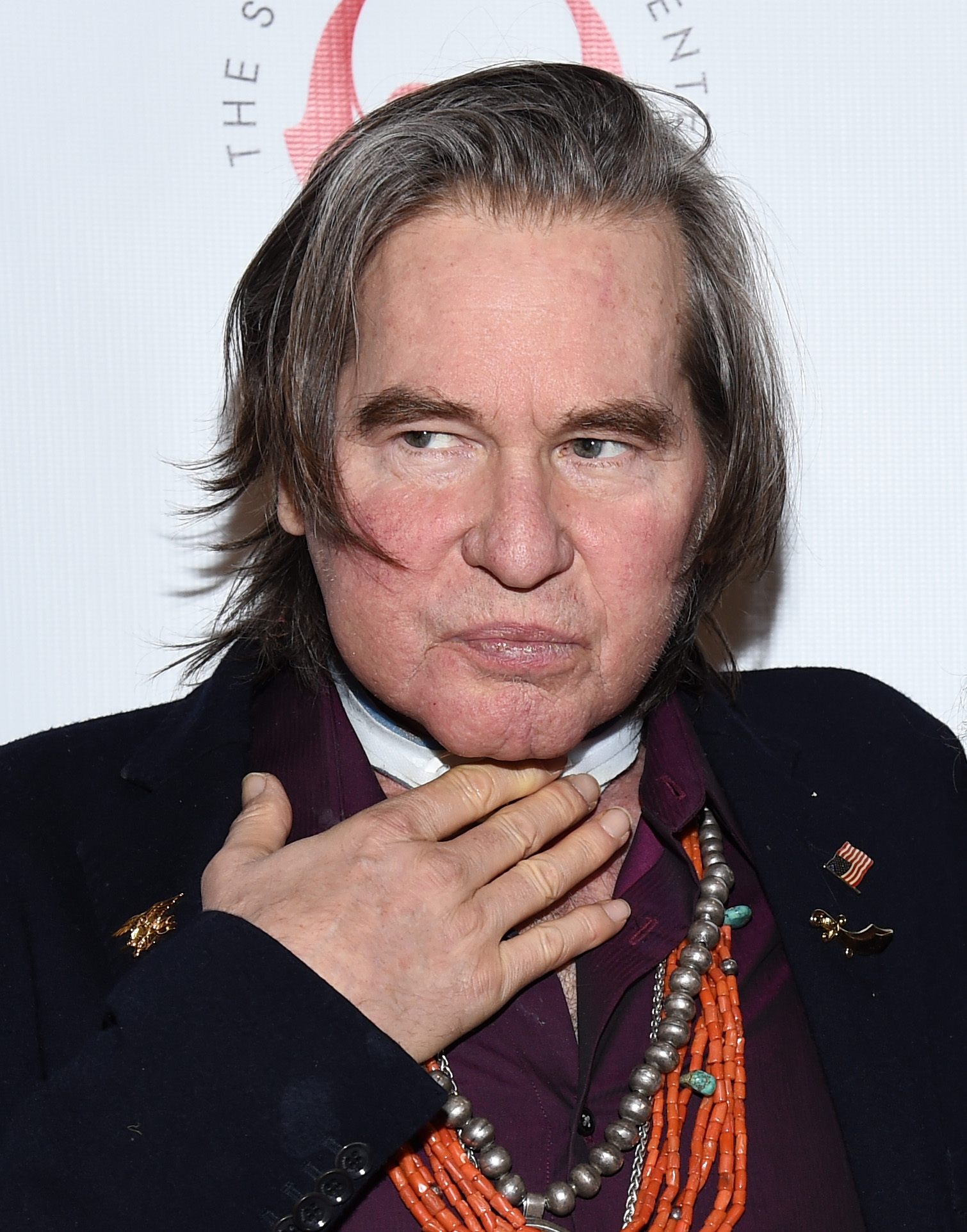
Val Kilmer at the Simply Shakespeare's Live Read of "The Merchant Of Venice" at Walt Disney Concert Hall on October 28, 2019, in Los Angeles, California. | Source: Getty Images
A Belief that Stirred Debate
Kilmer, one of Hollywood's most magnetic and unconventional actors, was widely recognized for his memorable roles in films like "Top Gun," "The Doors," and "Tombstone."
He trained at Juilliard, further sharpening his craft with a deep commitment to the dramatic arts. Known for his intensity and artistic eccentricity, the actor brought a unique energy to every character he played.
His career spanned decades, earning him critical acclaim and a loyal fan base. He was also known off-screen for his intellectual curiosity and philosophical musings.
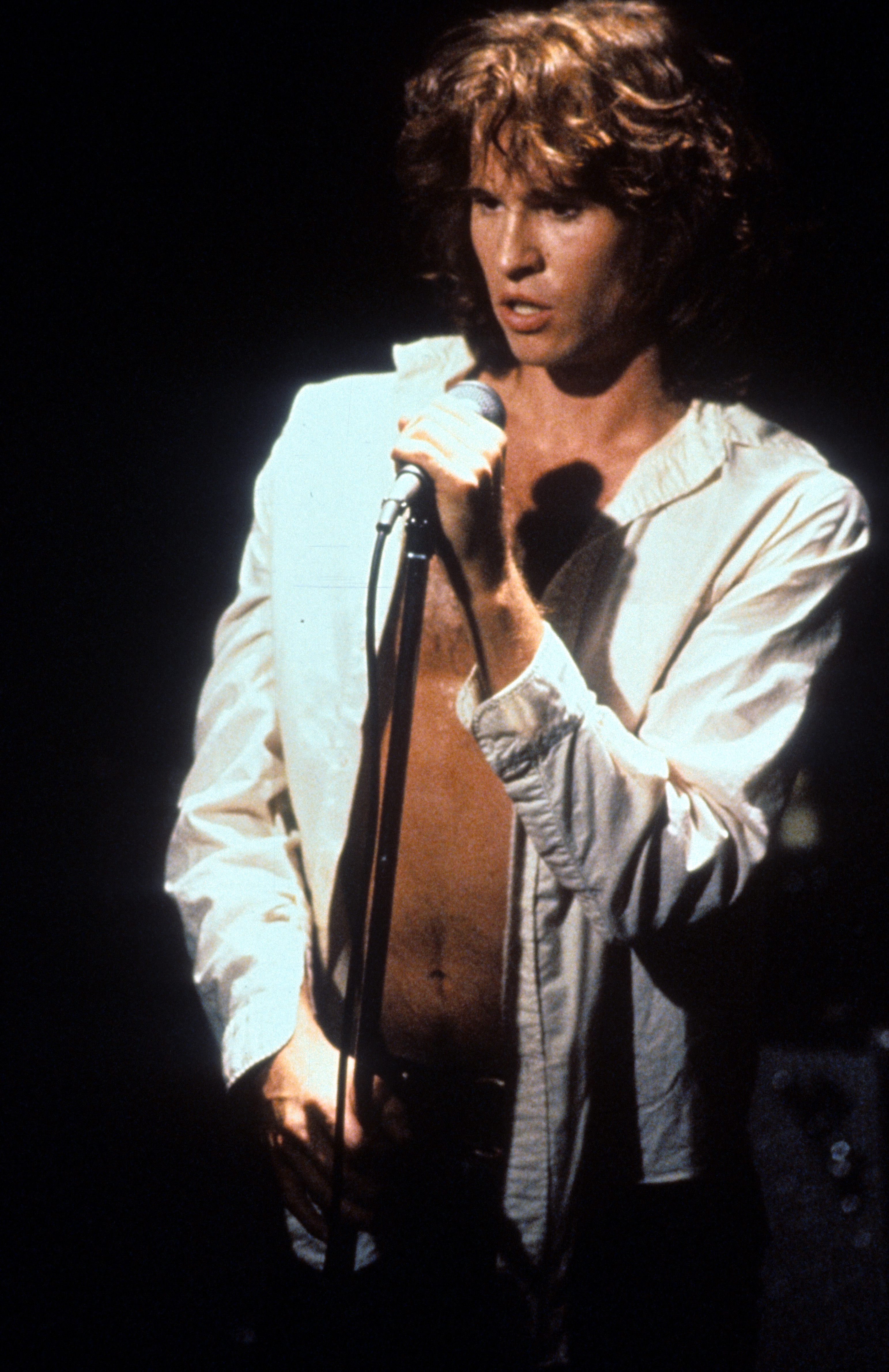
Val Kilmer filming "The Doors" in 1991. | Source: Getty Images
On April 1, 2025, Kilmer sadly passed away at 65 after succumbing to pneumonia. His passing marked the end of a long and often difficult chapter in his life, particularly the years he spent battling throat cancer, a diagnosis he received in 2014.
Initially, Kilmer kept his illness private, adhering to the spiritual teachings that had guided much of his life. However, in 2015, amid public speculation about his health, Kilmer addressed rumors in a Facebook post, sharing, "Thank you all for your love and support."
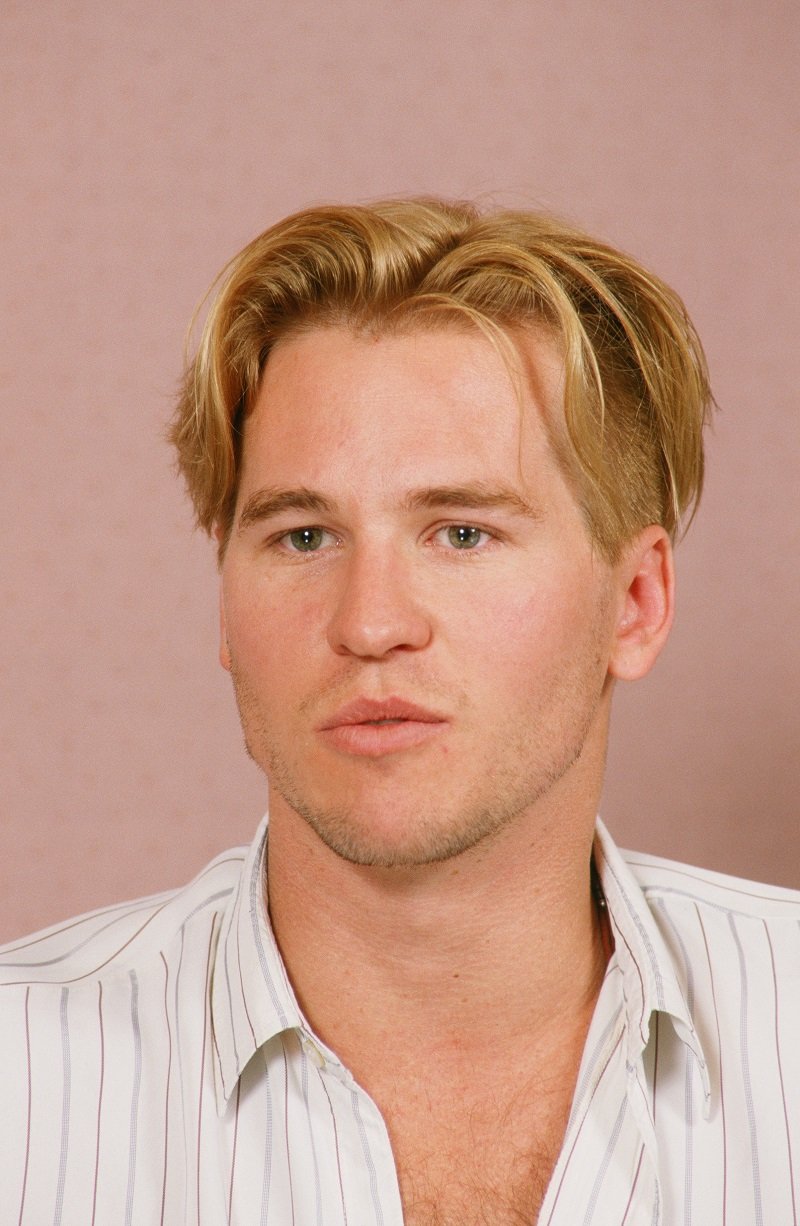
Val Kilmer photographed in Los Angeles, California, in 1988. | Photo: Getty Images
"There's a rumor I'm unwell again and in hospital which is totally untrue. I was in to verify I have no tumor or infection of any kind which was verified by the very caring experts at UCLA," the post continued.
His insistence that he was healthy at the time reflected his long-standing belief in spiritual healing over traditional medicine. Kilmer was a devoted follower of Christian Science, a 19th-century religious movement founded by Mary Baker Eddy.
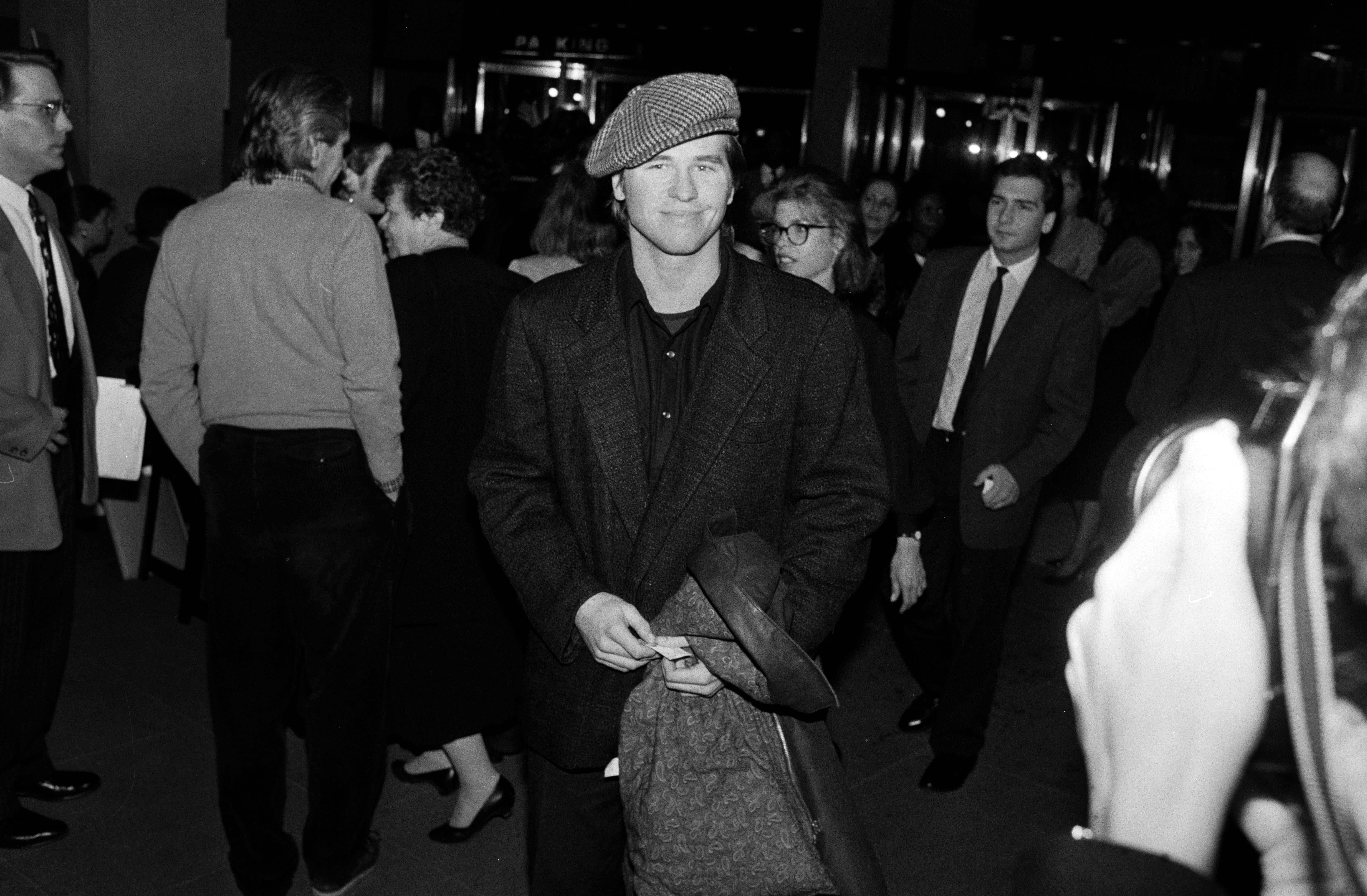
Val Kilmer at the "New York Stories" premiere at the Museum of Modern Art in New York on February 27, 1989. | Source: Getty Images
The faith teaches that illness is a manifestation of the mind rather than the body and can be healed through prayer and spiritual understanding.
At first, Kilmer followed the principles of Christian Science without deviation. He chose to pursue healing through prayer alone, relying on what he believed to be the divine method.
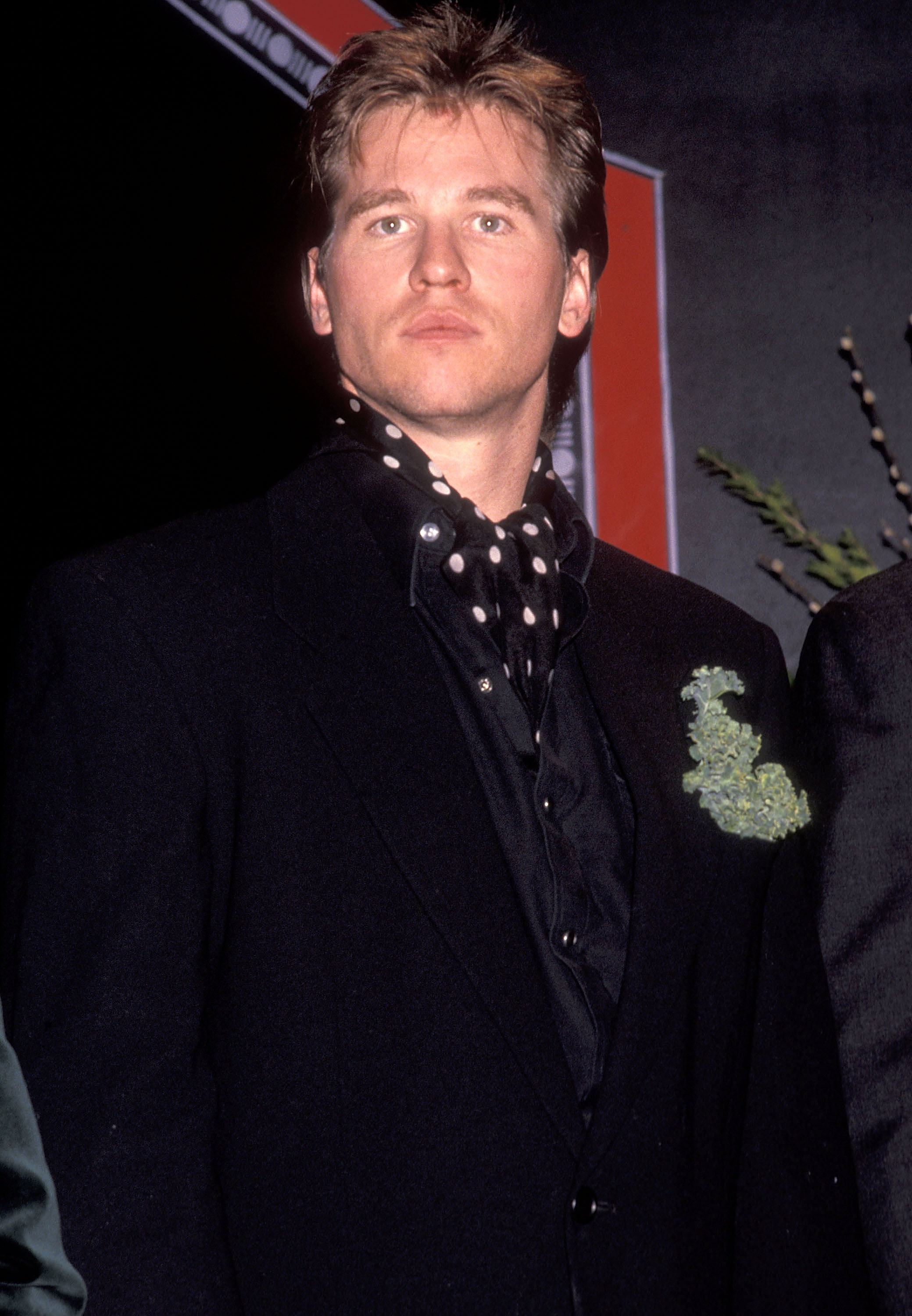
Val Kilmer at the "Twelfth Night on Twelfth Night" opening night play performance on January 6, 1991, at the Balcony Theatre in Pasadena, California. | Source: Getty Images
But his perspective began to shift as the disease progressed and the well-being of his children became a pressing concern. The actor eventually consented to undergo a tracheotomy, as well as chemotherapy and radiation.
However, despite receiving traditional medical treatment, he maintained that prayer had played a central role in his healing. In 2017, three years after his diagnosis, he publicly acknowledged his cancer battle for the first time.
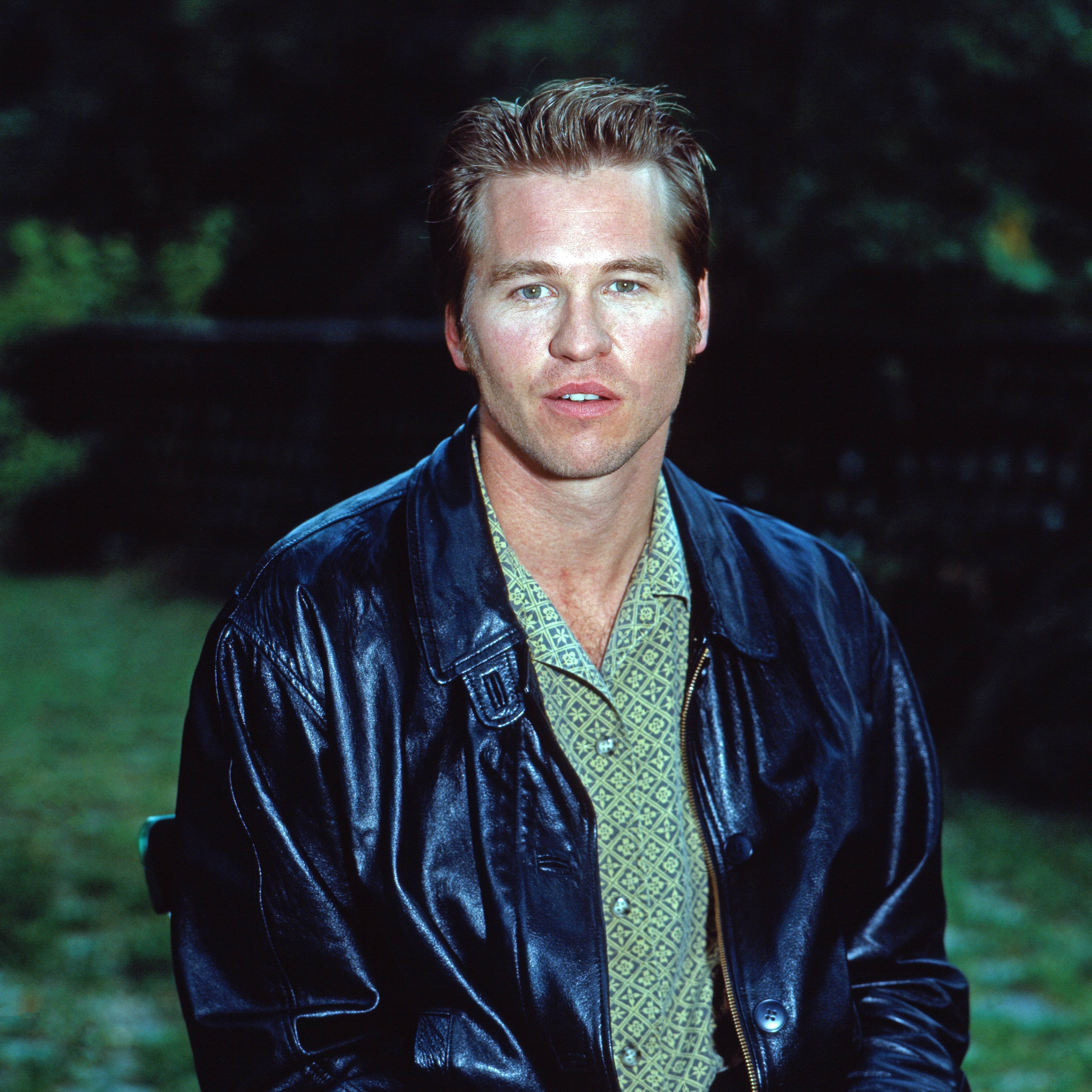
Val Kilmer during an interview in Munich, Germany, in 1992. | Source: Getty Images
During a Reddit Ask Me Anything, one fan referred to the actor as a "cancer survivor" and asked what he wanted others to know about the experience. Kilmer responded candidly:
"People that know I am a Christian Scientist make the assumption that I have somehow endangered myself. But many, many people have been healed by prayer throughout recorded history. And many, many people have died by whatever was modern medicine."
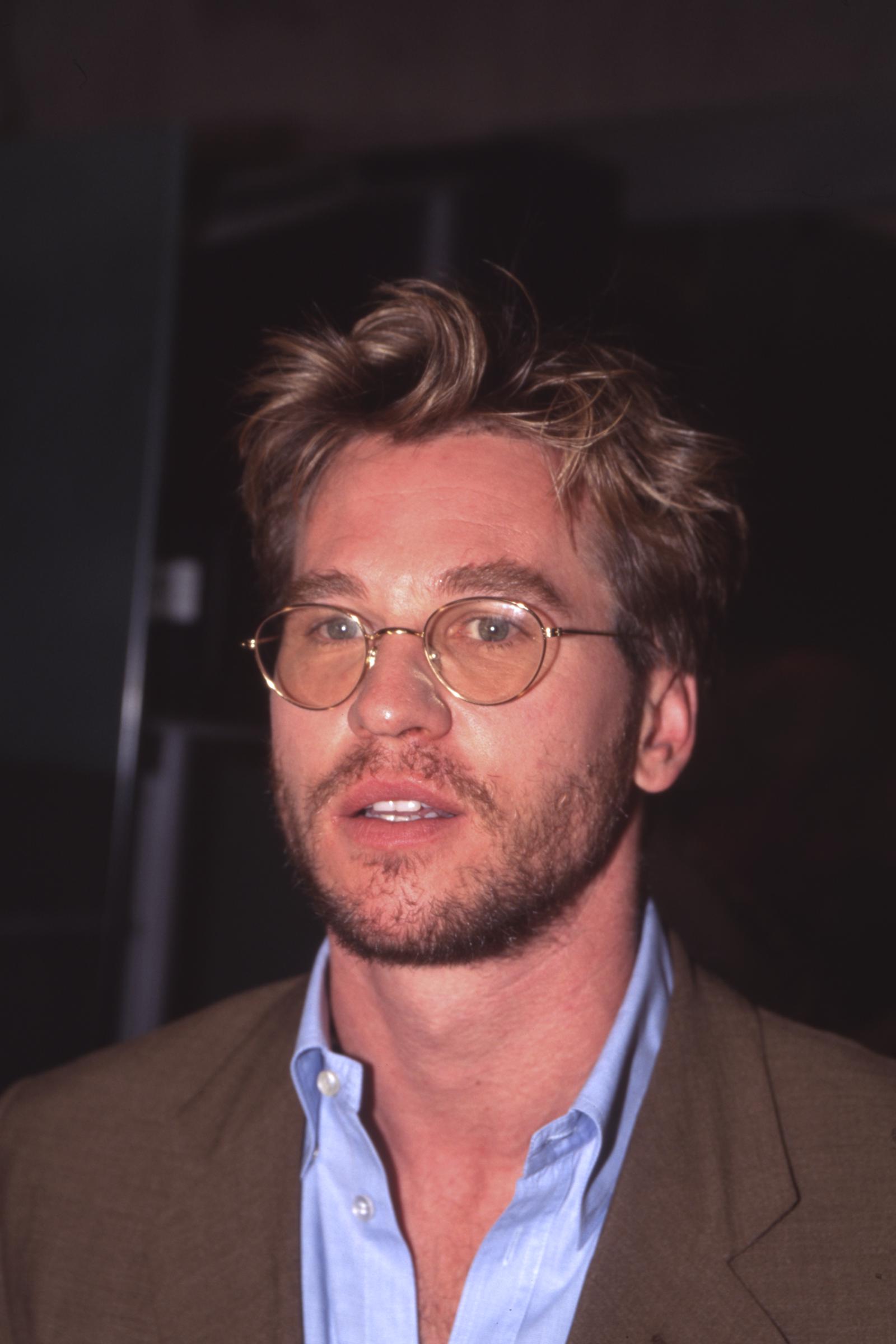
Val Kilmer photographed in France on July 11, 1995. | Source: Getty Images
Kilmer continued to explain the role that love and faith played in his recovery, referencing a conversation he had with Dr. Bernard Lown. "I asked him what was the most important thing for a doctor to do when a patient fears for their life," the Hollywood star started.
"He started to weep without his voice wavering and he leaned into me and said, 'Fluff their pillow. [That's] what I tell all the interns. LOVE. Love heals,'" Kilmer wrote. The actor added, "Even two of my doctors mentioned praying with me, for me."
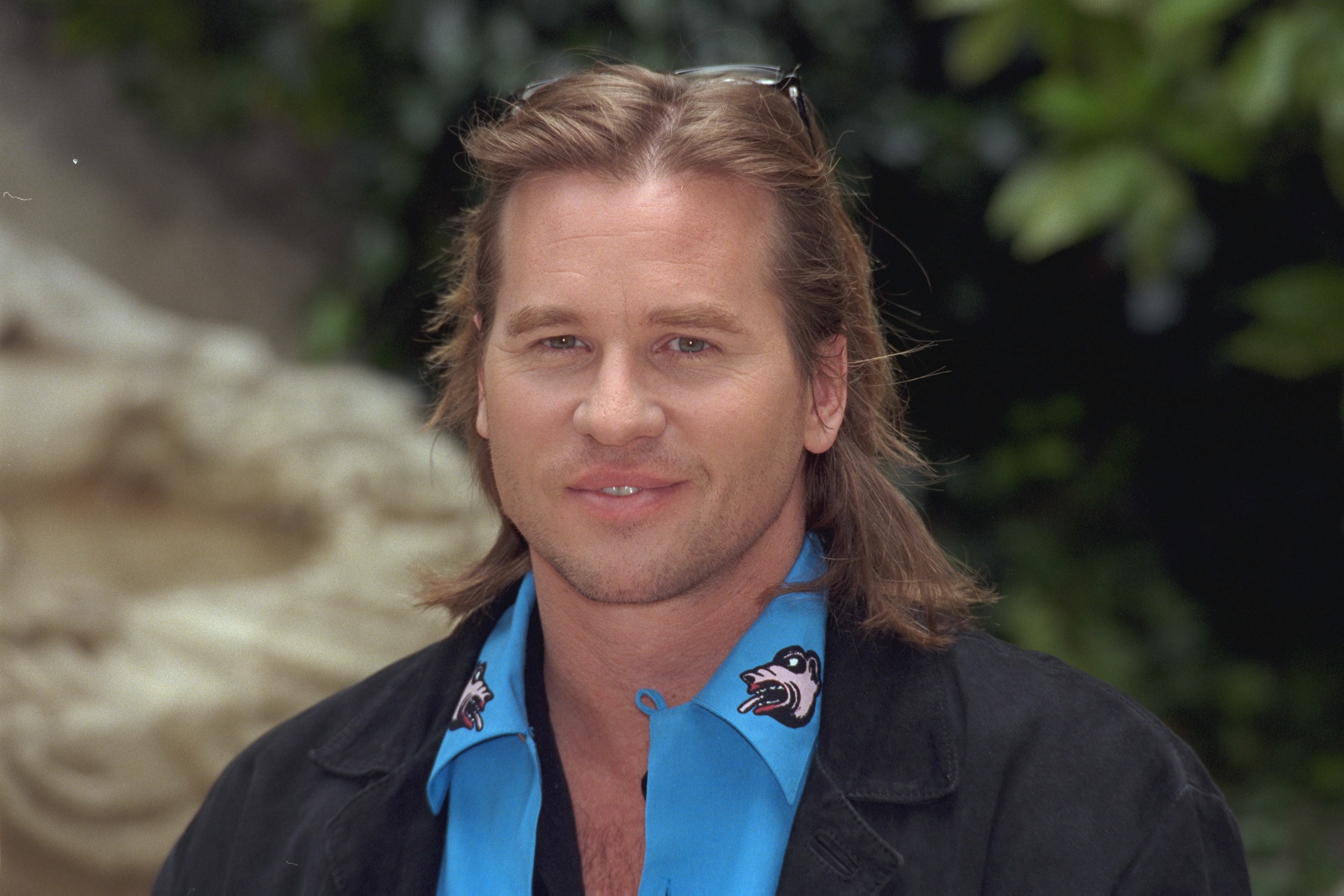
Val Kilmer during a photocall in 1999. | Source: Getty Images
He acknowledged that his beliefs were unconventional and, at times, misunderstood.
Nonetheless, his remarks drew criticism from skeptics. One person commented that discovering Kilmer was a Christian Scientist was "a bummer," but added they still appreciated his work, especially "The Salton Sea." They concluded, "Whatever gets you through the day [...]."
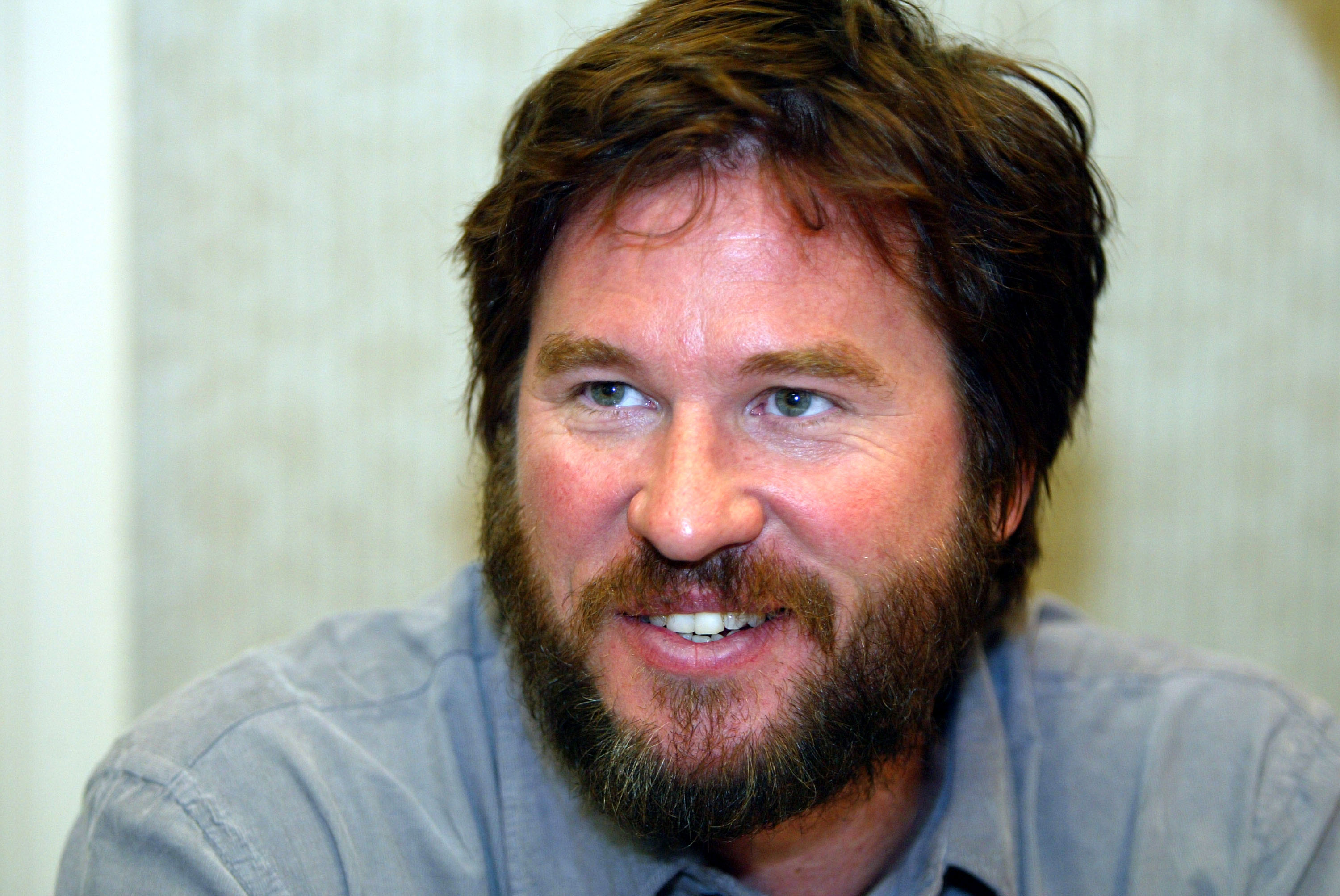
Val Kilmer during the Hollywood Collectors Show on October 4, 2003, at North Hollywood in California. | Source: Getty Images
Another person added, "Sure, we don't know everything, but we do know that prayer doesn't work. Placebo works great for certain things though."
Someone else questioned the logic of Kilmer's belief system, asking, "If you actually believe that it is possible to be healed by prayer, then why do you even have doctors?"
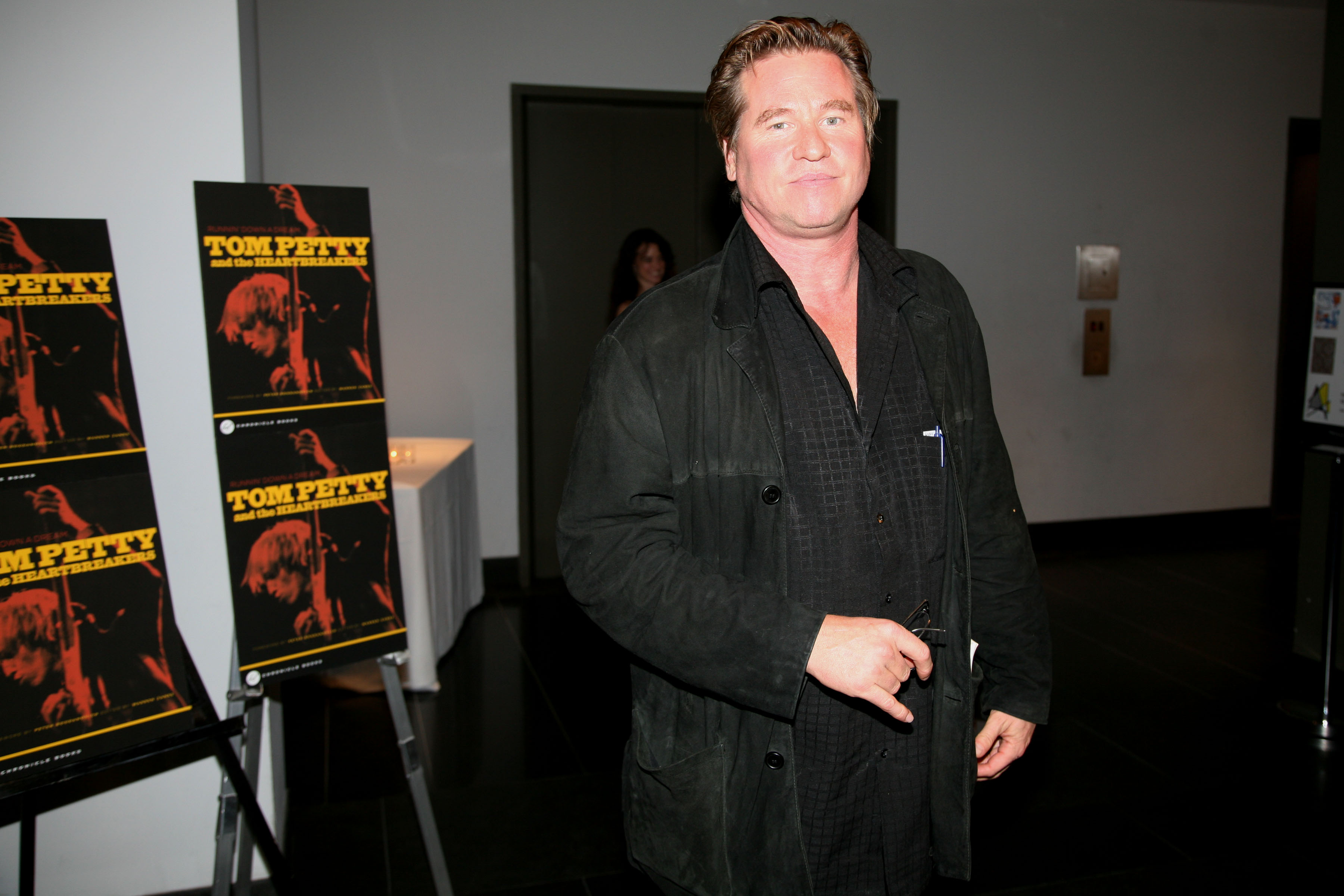
Val Kilmer photographed at an event at Milk Studios on November 14, 2007, in New York. | Source: Getty Images
And another person expressed deep disappointment, writing that they had "always had general good feelings toward Val Kilmer," but that learning he was a Christian Scientist was "soooo disappointing."
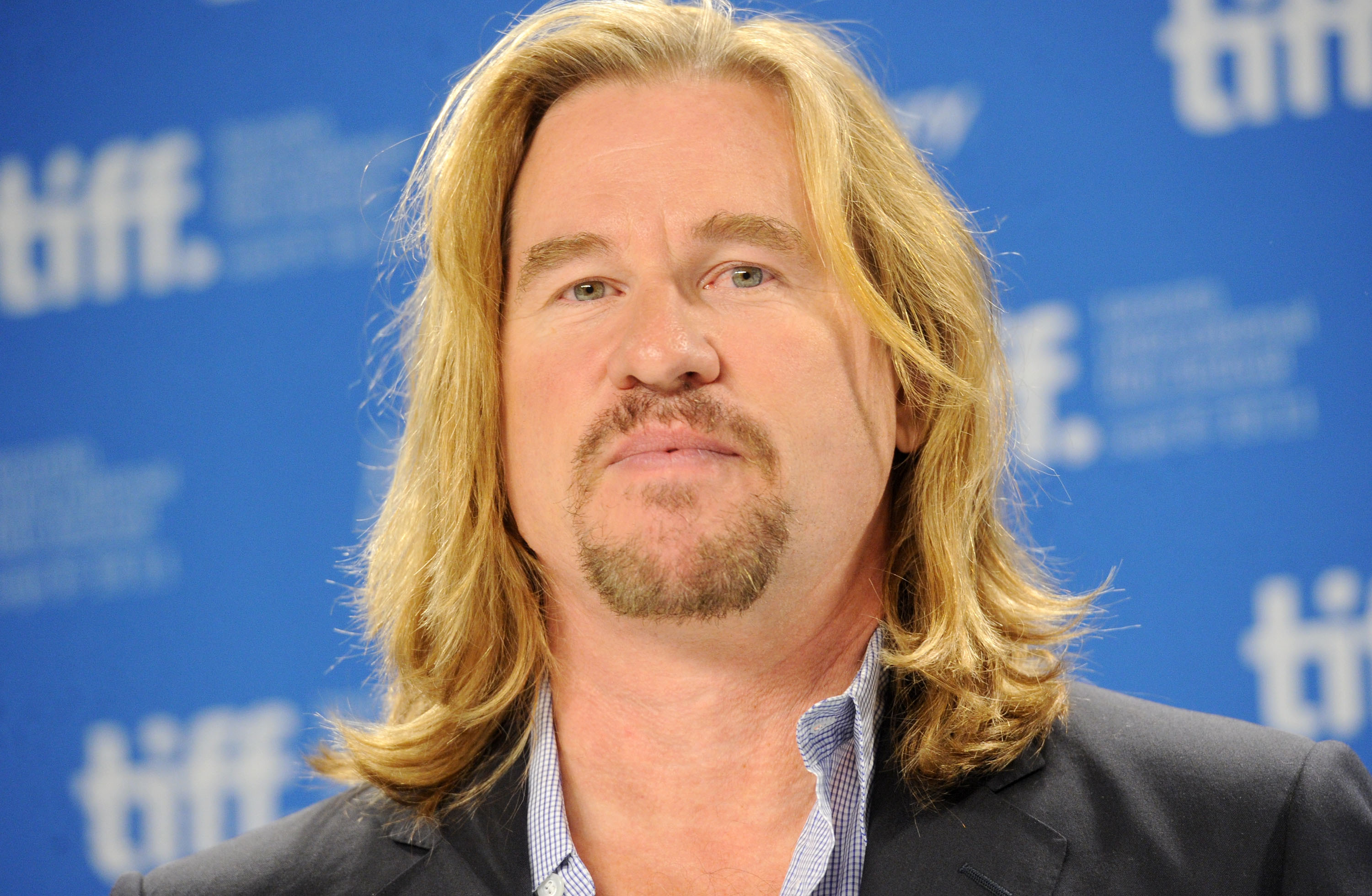
Val Kilmer during the 2011 Toronto International Film Festival at TIFF Bell Lightbox on September 12 in Canada. | Source: Getty Images
Kilmer addressed any potential backlash in his post, sharing, "Sometimes people are surprisingly mean about this sort of talk. Maybe they mix it up in their minds with extremists. People screaming with signs in front of Planned Parenthood or something." He added:
"That's not my sense of Christianity. Or most people's regardless of their religion. Any more than a Muslim identified themselves with the madness of a suicide bomber spreading fear in the name of Allah."
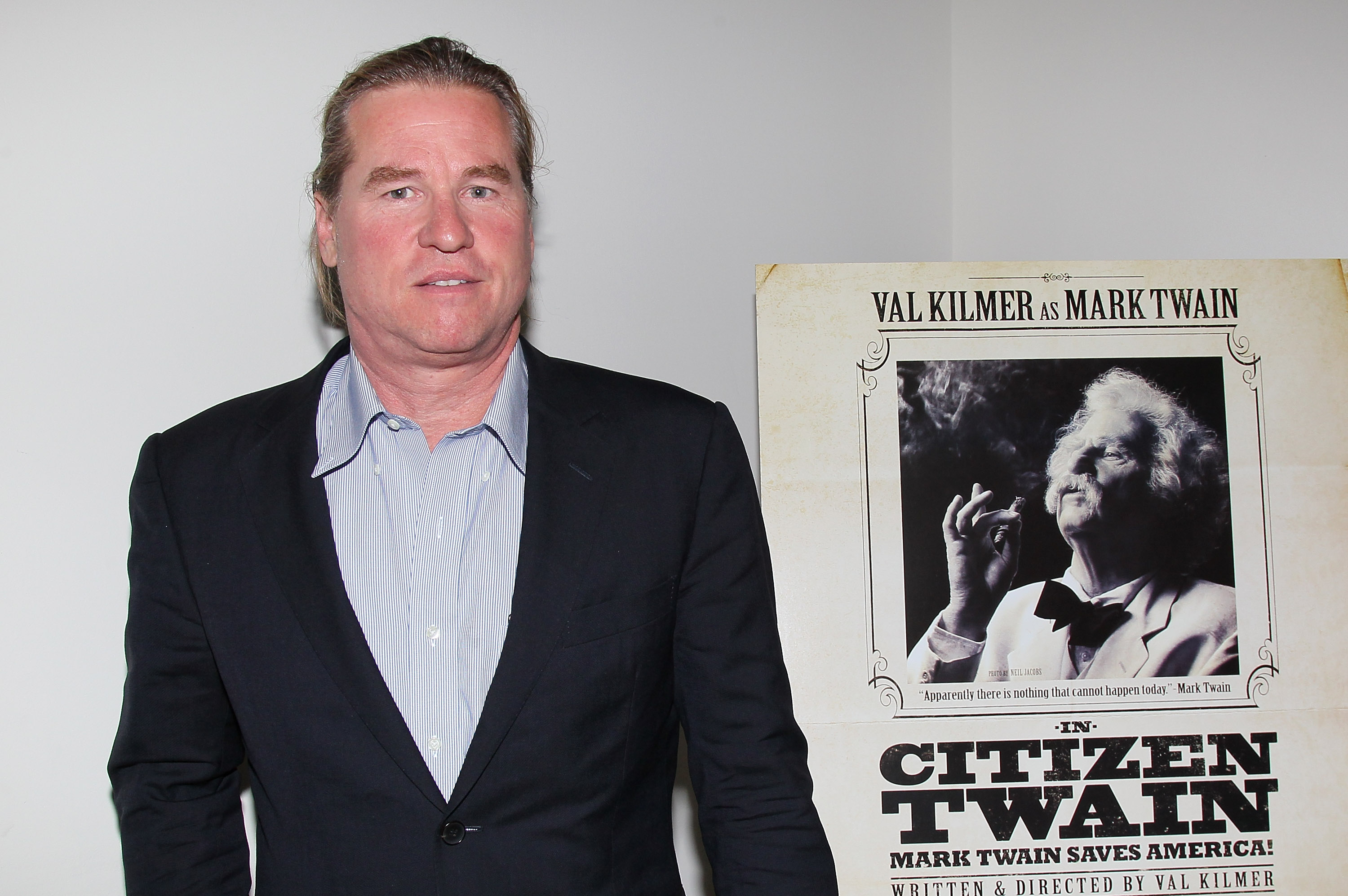
Val Kilmer at a signing at the opening night of his one-man show "Citizen Twain" at Hollywood Forever on March 30, 2012, in Hollywood, California. | Source: Getty Images
However, not all the responses were negative. One person emphasized the importance of balance, writing, "Yes prayer is wonderful, but you need medicine also. [...] Prayer combined with the smart use of medicine is the way to go."
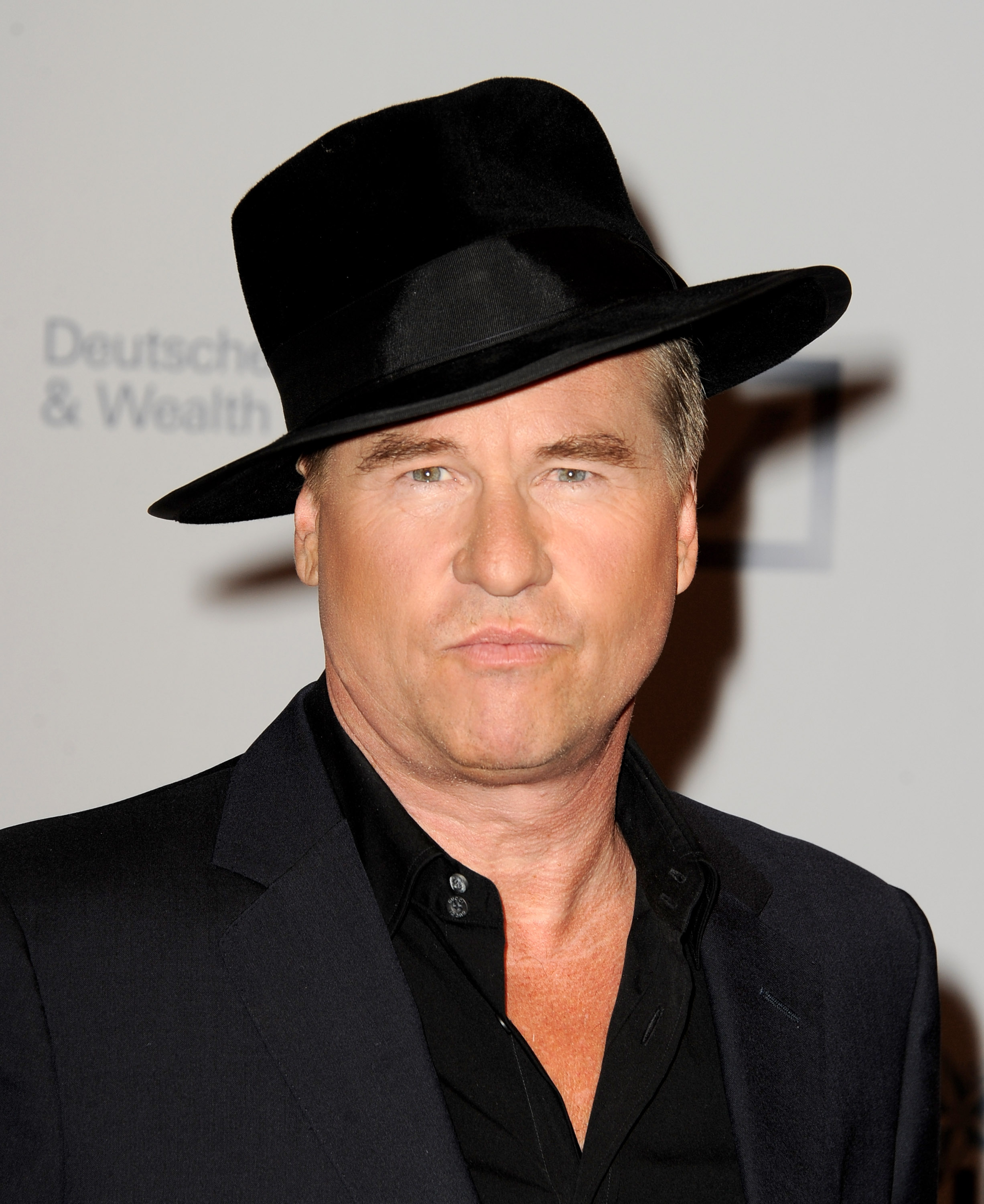
Val Kilmer at the 23rd Annual Simply Shakespeare Benefit reading of "The Two Gentleman of Verona" at The Broad Stage on September 25, 2013, in Santa Monica, California. | Source: Getty Images
Another person, who identified as a Christian who also values science, offered a heartfelt message that read in part, "I'm so thankful to see you as a beloved actor, speaking out for Christ." A third simply wrote, "This really touched me, thank you Iceman."
In a 2020 interview, Kilmer reiterated that he believed his healing came through prayer, not medicine. He said, "I prayed, and that was my form of treatment."
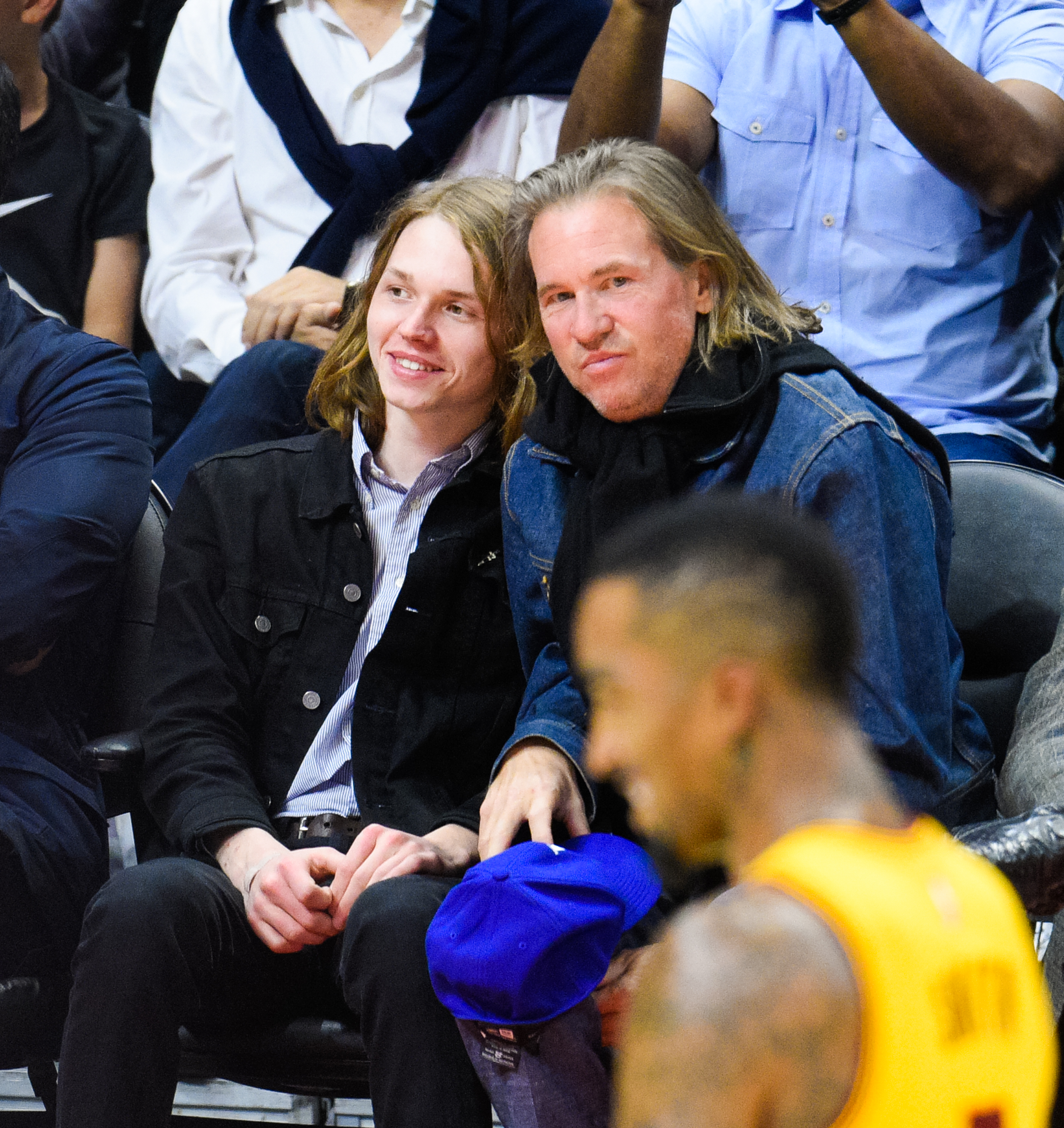
Val Kilmer and his son, Jack Kilmer, at a basketball game between the Cleveland Cavaliers and the Los Angeles Clippers at Staples Center on January 16, 2015, in Los Angeles, California. | Source: Getty Images
He further clarified, pointing at his trach tube, "That's from radiation and chemotherapy. It's not from cancer." Kilmer insisted that the suffering he endured was not from the illness but from the medical treatments he agreed to. "That 'treatment' caused my suffering," he added.
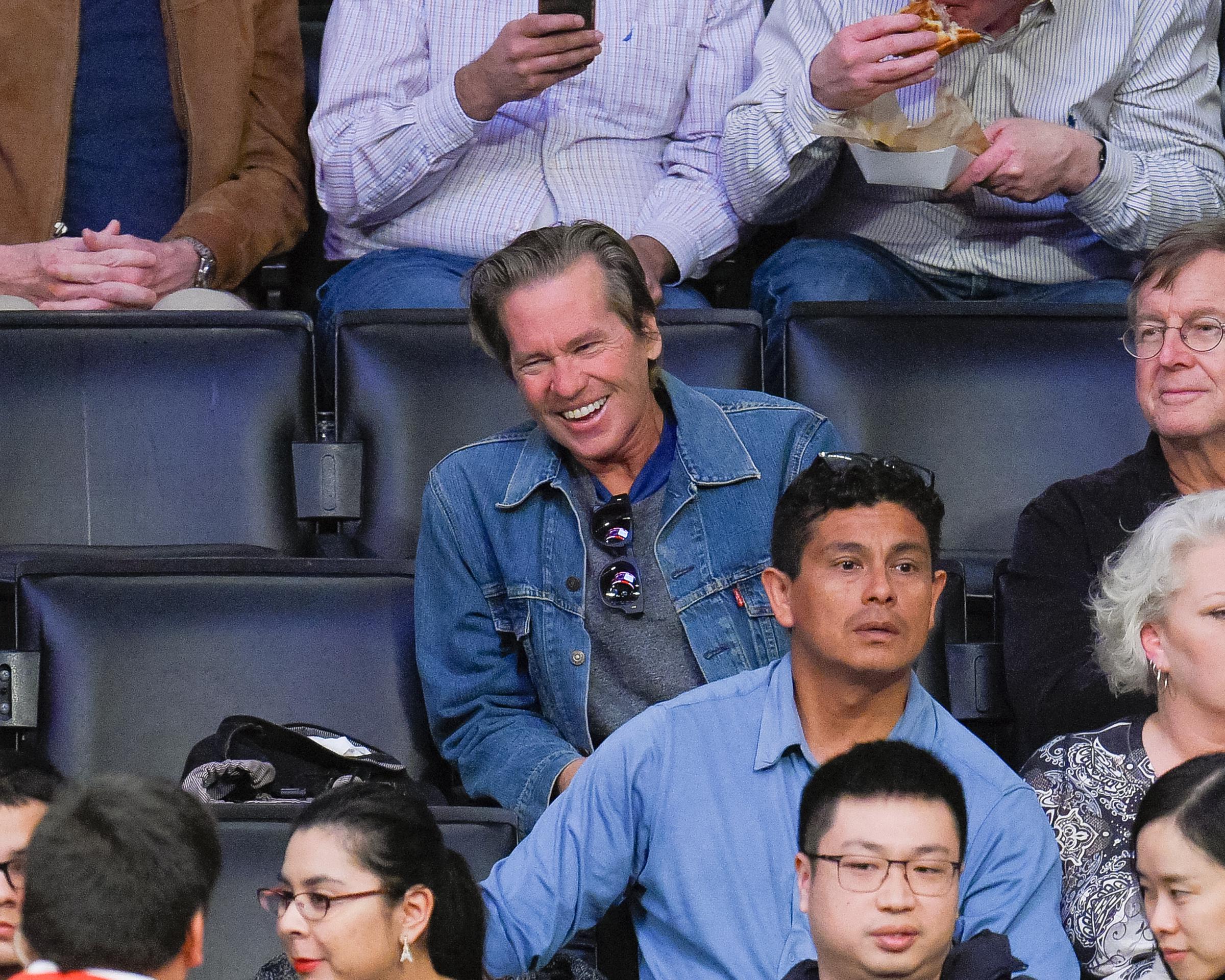
Val Kilmer spotted at a basketball game between the Miami Heat and the Los Angeles Lakers at Staples Center on January 6, 2017, in Los Angeles, California. | Source: Getty Images
His commitment to Christian Science ran deep; however, it wasn't always easy. In a 2005 interview, the "Top Gun" star said, "Well, I am trying to be. It is quite a challenging faith." He refuted the common misconception that Christian Scientists reject all forms of medicine.
"People used to say, 'Christian Science. Oh, you're the ones that don't believe in doctors,' which is not a true thing. It's just a different way of treating a malady. It could be mental, social, or physical," the actor said.
Kilmer explained that even his younger brother Wesley, who died as a teenager from an epileptic seizure, received a mix of medical and spiritual care.
His beliefs even influenced how he approached parenthood.
"When Wesley was diagnosed, he was given medical treatment. When he was in school, they would stop the treatment. Then periodically, he would go back and forth between Christian Science and the medical treatment," Kilmer shared.
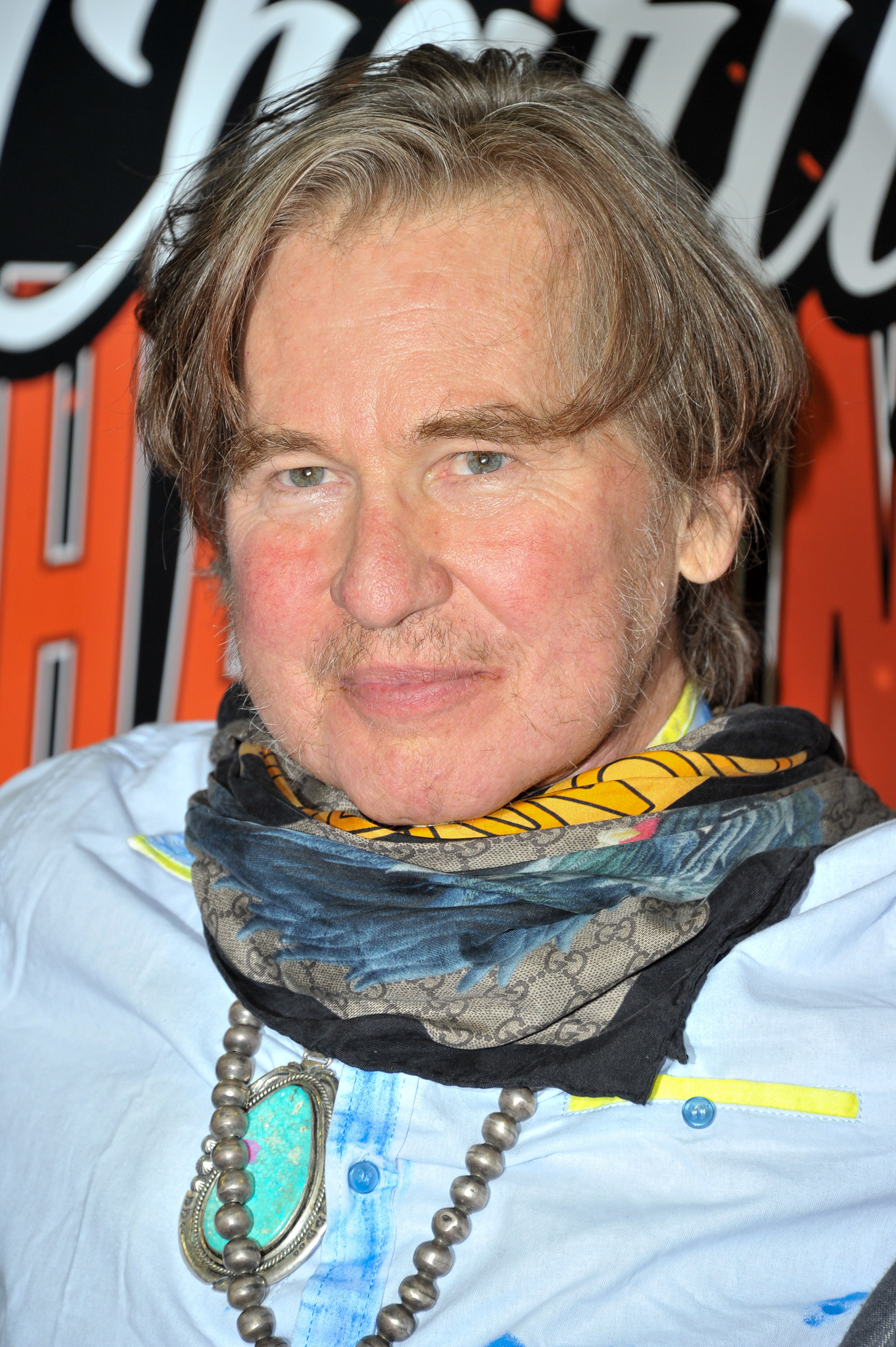
Val Kilmer at UCLA's Pauley Pavilion on July 8, 2019, in Westwood, California. | Source: Getty Images
When asked if his brother's death could have been prevented with consistent medical care, Kilmer was firm, declaring, "Christian Science isn't responsible for my little brother's death."
His upbringing was marked by personal tragedy and family disconnection. The son of an engineer and a housewife, Kilmer watched his family splinter apart. His parents divorced, and he later became estranged from his older brother due to a business dispute.
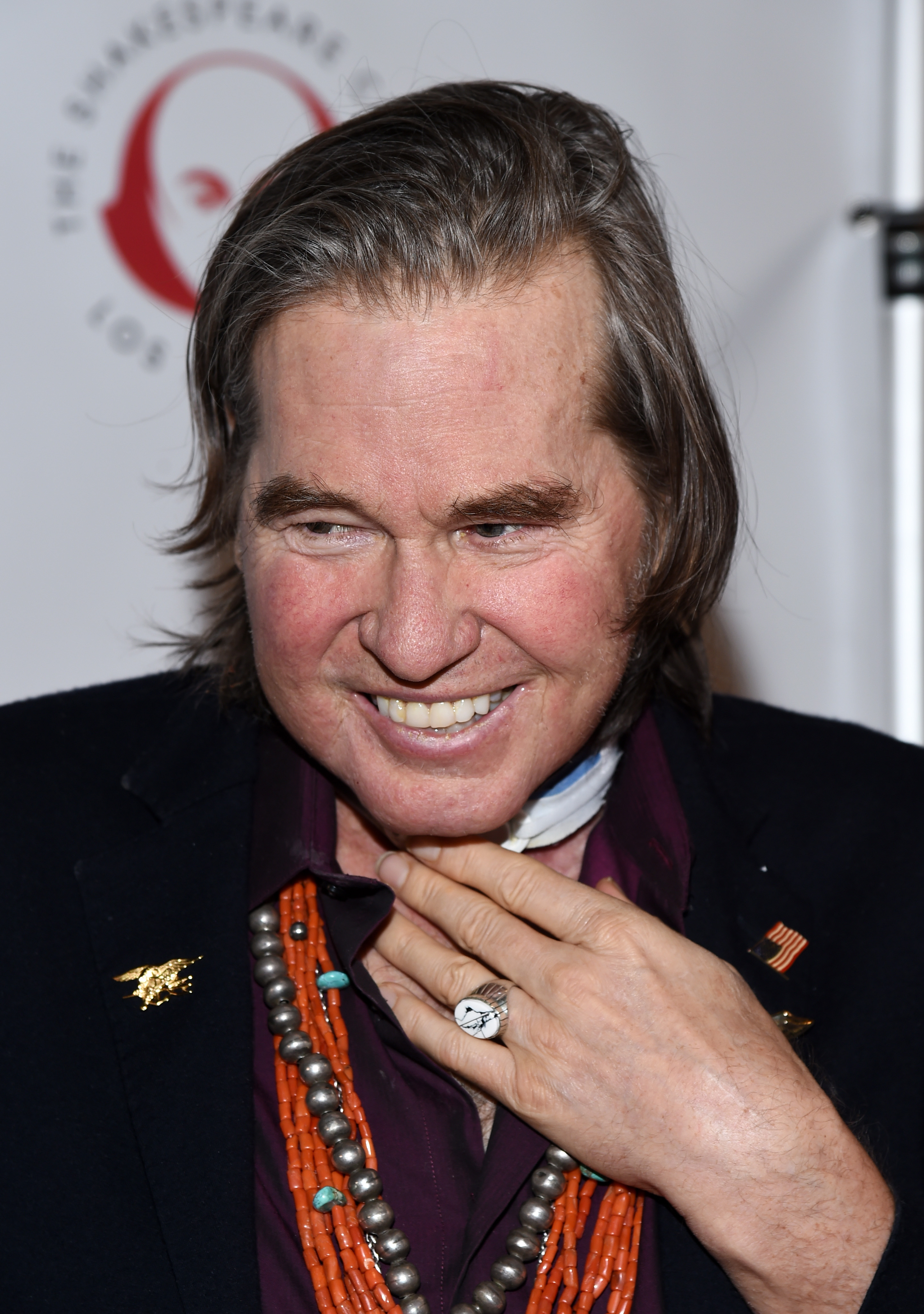
Val Kilmer at Simply Shakespeare's live read of "The Merchant of Venice" in 2019. | Source: Getty Images
Reflecting on that rift, he once remarked, "We have a much better relationship not speaking." His beliefs even influenced how he approached parenthood.
Asked whether he would deny his daughter antibiotics for a sore throat, Kilmer replied that, because he was divorced, he didn't have full control over such decisions.
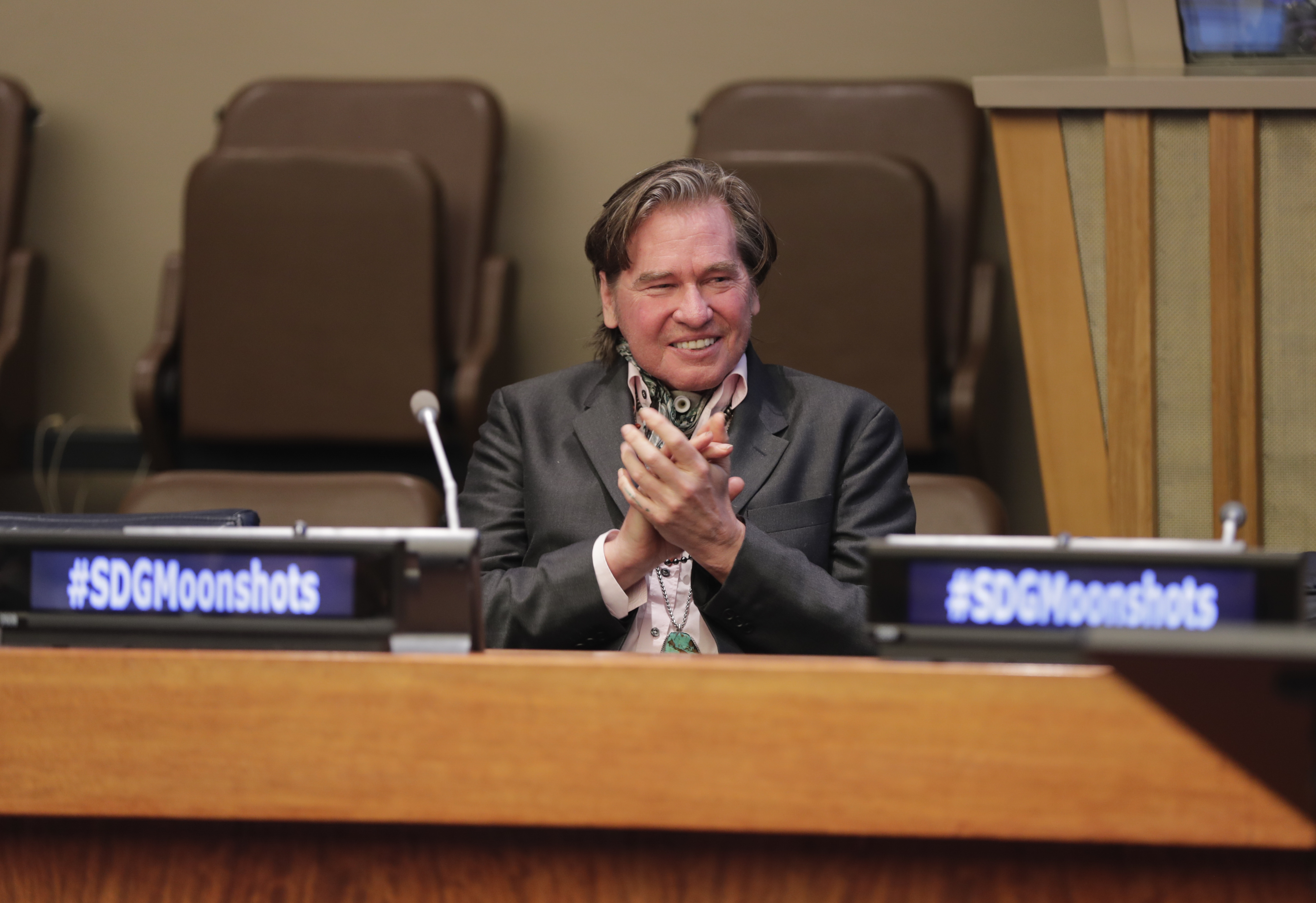
Val Kilmer during a visit to the United Nations headquarters in New York on July 20, 2019. | Source: Getty Images
The loss of his brother, coupled with the demands of his faith, shaped much of his emotional and spiritual outlook.
Still, he stated that his first response would be to pray. He believed that most illnesses stemmed from fear. Furthermore, the Hollywood star compared Christian Science to other belief systems, noting that Scientology is "basically Christian Science without God."
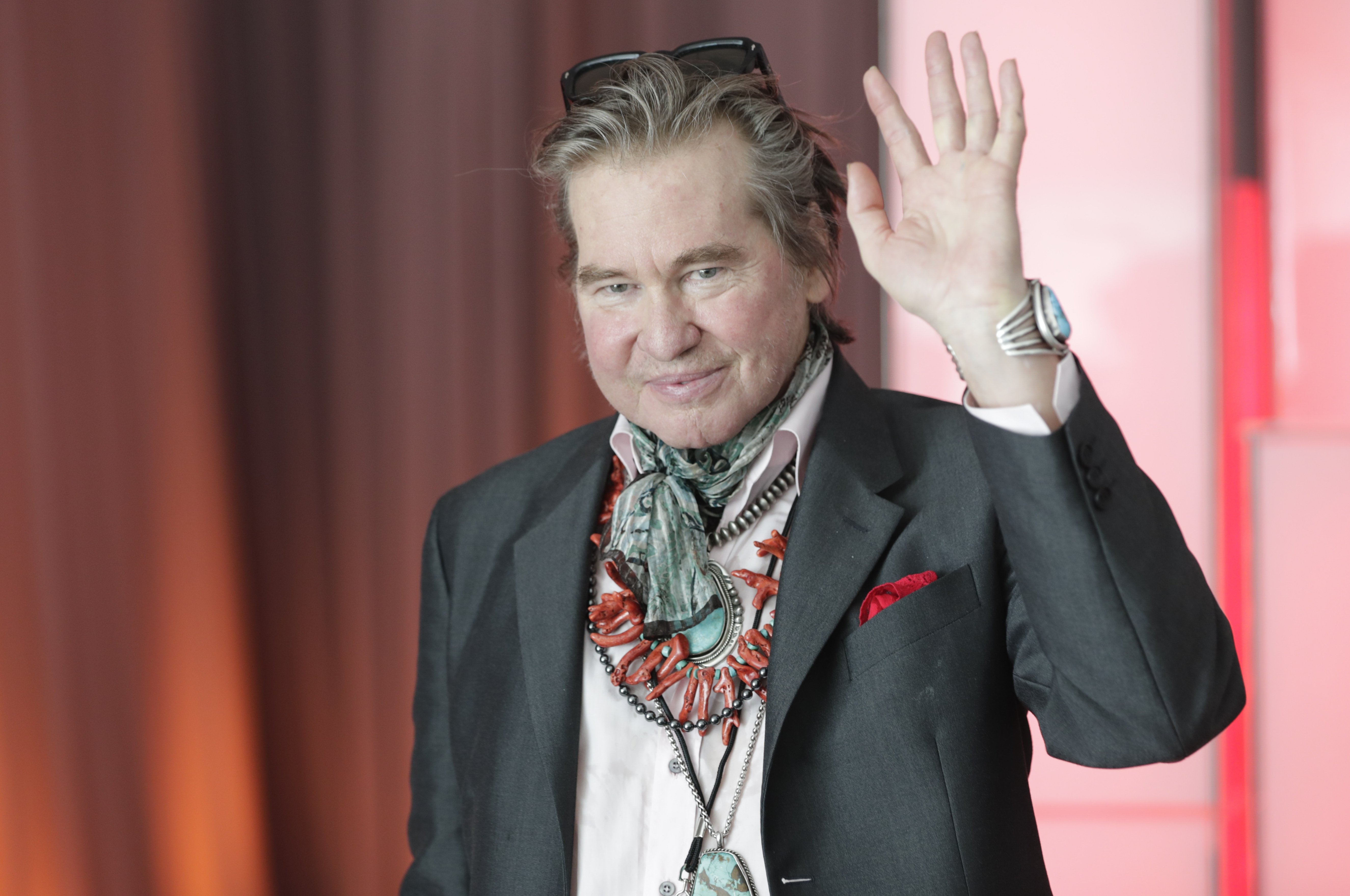
Val Kilmer at the United Nations headquarters on July 20, 2019. | Source: Getty Images
He debated the definitions and structures of religion itself. During one such discussion, he walked into his house, returned with a magnifying glass, and began thumbing through multiple dictionaries, including Webster's Second Unabridged Dictionary.
He spent 15 minutes searching for what he believed to be the most accurate definition of the word "religion." Kilmer's devotion to the faith also revealed itself in his day-to-day life. In his 2020 memoir, "I'm Your Huckleberry," he wrote:
"My faith fortified me. I leaned on the teachings of Mrs. Eddy, who understood God only in terms of positivity. At the same time, this became the tragic event of my young life. Perhaps my entire life."
The loss of his brother, coupled with the demands of his faith, shaped much of his emotional and spiritual outlook. The "Top Gun" star's reflections on illness, prayer, and the nature of healing offered a window into the unique worldview he maintained throughout his life.
Even as he faced criticism, Kilmer remained resolute in his beliefs. "There is nothing either good or bad but thinking makes it so," he said in 2020, quoting Mrs. Eddy quoting "Hamlet." In his eyes, his faith was not just a belief system but a way of life.
While opinions varied on his approach to illness, Kilmer's steadfastness, vulnerability, and unwavering commitment to his convictions left a lasting impression. His journey could serve as a testament to the power of personal belief in the face of suffering, whether one agreed with it or not.
The information in this article is not intended or implied to be a substitute for professional medical advice, diagnosis or treatment. All content, including text, and images contained on ondoho.com, or available through ondoho.com is for general information purposes only. ondoho.com does not take responsibility for any action taken as a result of reading this article. Before undertaking any course of treatment please consult with your healthcare provider.
